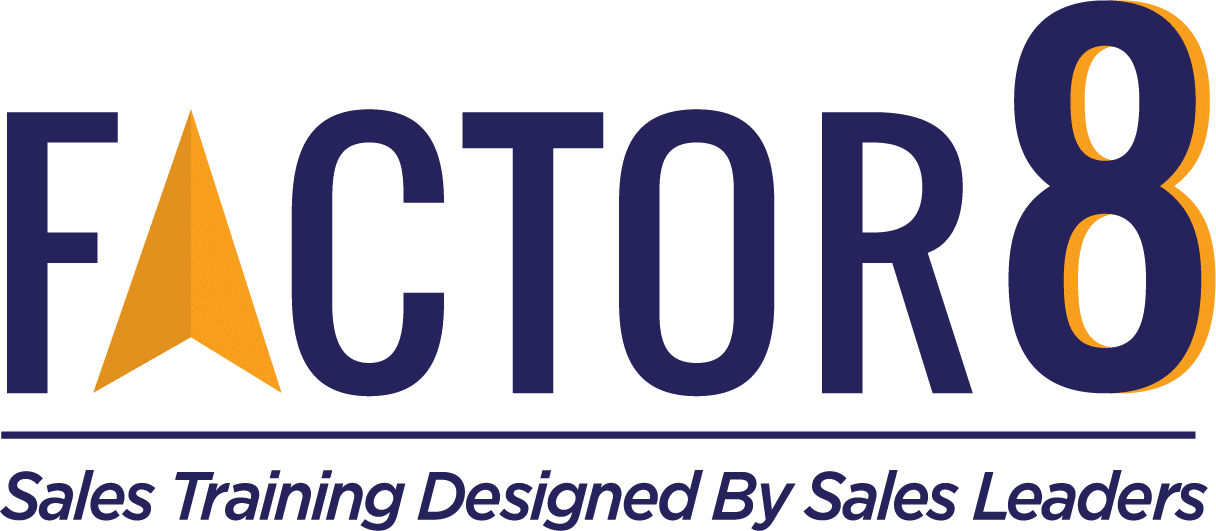8 Essential Sales Manager Meetings to Master
At my very first management job, I managed a little retail pop-up at Lindale Mall in Cedar Rapids, Iowa. Funny how that experience was SO cool in my twenties, cringy in my thirties, and now just a sweet memory.
In that job, I learned the hard way how important it is to teach yourself (or your team) what a successful meeting should look like. I learned that if you don’t have a plan, agenda, or at least a list, then what you will have is a train wreck. Your meetings will be too long, too short, too impersonal, or too casual. However, with a little pre-planning and strategy, your sales manager meetings can be both impactful and efficient!
I will never forget my first “team meeting” at the retail store. I prepared for DAYS and my 45-minute meeting went TWO HOURS long. The patient, part-time adults working there were DYING of boredom. Every new manager has felt this pain, right? (Please, tell me I’m not alone). That experience stayed with me as I left retail and went into the bright shiny world of sales.
In the sales world, there are so many important sales manager meetings. As a fledgling manager, it was hard for me to understand the nuances of each separate type of meeting.
So, for all of my newbie sales managers (or future sales managers) I wanted to break down the top 8 essential sales manager meetings you need to master and provide a little insight that I wish I had in my early days.
1. Sales Huddle
Goal:
- This meeting should be standing room only. The point is to get in, get pumped, and get out (and on the phones!) This meeting starts the day with focus and gets everyone on the same page. It’s also a good place to set the day’s goal – “Today we’re all going to get 5 touches.” And every once in a while, this is a great opportunity to do a quick skill reminder or overview of a new skill!
How Often:
- Newbie team – Every day
- Tenured team – 2-3 per week
How Long:
- Short – 15 minutes or less
Insider Tip:
- Keep this meeting interesting, mix it up. Don’t run the meeting every time. This is a great opportunity to give those up-and-coming managers a chance to start practicing their leadership skills.
2. Performance 1:1
Goal:
- The performance 1:1 meeting should be a private meeting with just you and your rep. You will go through all of their metrics, talk about team ranking, discuss performance, set goals for the next month, and address performance issues (if necessary).
How Often:
- Once per month, I recommend doing them the first week of the month.
How Long:
- 30 – 60 minutes
Insider Tip:
- Resist the urge to make this a 15-minute meeting, even if they’re hitting all of their numbers and you don’t think you have anything to address. If that’s the case, then use this time to build your relationship. Go beyond the numbers. Most Millennials and Gen Z crave connection to their leaders. This is a perfect chance to do just that!
3. Call Coaching
Goal:
- This meeting is all about skill-building. Coaching is not about performance or discipline. We are discussing and building new skills. If you’re coaching regularly, then you’re not waiting to find something wrong. You’re either encouraging already stellar behavior or getting ahead of those areas of opportunity. This usually works best if you and your rep listen to the recorded call and score separately before your meeting. Then you come together to compare notes. Using this structure not only builds their sales skills; it helps them learn how to self-reflect. This meeting can be 1:1 or you can do a group meeting up to 3:1. Just be careful, in a group meeting it’s important that each rep still receives individual feedback on their call.
How Often:
- Newer or Underperforming Reps – Once per week
- Tenured or High-Performing Reps – Once per month
How Long:
- 15 – 60 minutes
Insider Tips:
- You don’t have to find something wrong! Coaching sessions are a great time to boost your rep’s confidence by sharing positive feedback on their calls. You can even dive deeper into their strategies and share them with new reps! (Use our COACHN℠ model to help you in your coaching sessions!)
- Be sure you chart their progress and present a visual representation of it at least twice per year. Seeing a visualization of their progress (or lack thereof) can increase engagement, both in top-performing reps and in reps that might be underperforming.
4. Pipeline
Goal:
- This is a full team meeting. We are talking big picture only in pipeline (forecasting, wins and losses, clarifying needs to meet goal, adjusting expectations, and sharing strategies). To keep yourselves on track, stick to the facts – no stories. If a particular deal or client needs to be drilled into more, book a 1:1 or group strategy meeting only for the people who need to be involved.
How Often:
- Newbie Team – Once per week
- Tenured Team – Once per month
How Long:
- Varies based on team size
Insider Tip:
- Individual pipeline meetings kill your day and don’t do anything to motivate your newer or underperforming reps. It’s going to be easier for Rob to tell you 1:1 that he’s not going to hit goal. Announcing this to the whole team will be a bit more intimidating and can provide a little extra motivation.
5. Sales Strategy
Goal:
- This is where we look at how deals and performance are trending. We also talk about getting deals unstuck, strategizing how to penetrate accounts, etc.
How Often:
- Newbie & Mid-Level Reps – Monthly
- Top Reps – Quarterly or Bi-annually
How Long:
- 15 – 60 minutes
Insider Tip:
- These meetings work really well in a slightly larger group 3:1. If you are struggling with a particular rep, try pulling in your top reps to help with this brainstorming session!
- It’s important to have your top reps present their book of business to you twice per year, even if they are continuously hitting quota without issue. Give them love!
6. Team Meetings
Goal:
- This is a chance to get everyone on the same page about general items. It could be reviewing training skills, making team or company announcements, discussing customer success stories, answering product questions, or simply doing team-building exercises.
How Often:
- Newbie Team – Monthly
- Tenured Team – Quarterly
How Long:
- 60 – 90 minutes
Insider Tips:
- Try to frame company policies, product roll-outs, etc. in terms that are going to be important to your specific team. At least one team member is bored 75% of the time… most of the time it’s because they think that the issue doesn’t pertain to their job.
- Also, this is another meeting you don’t have to run every time. Have an up-and-coming leader? Let them run with one meeting. Have another department you work closely with? Bring in one of their leaders to provide a new perspective.
7. Rep Career Reviews
Goal:
- Talk about career goals and make a plan on the skills needed to get them there. Career advancement and development are continuously two of the top elements Millennials and Gen Z are looking for from their employer. This is the perfect opportunity to provide them with the feedback they desire!
How Often:
- Once per quarter
- Instead of creating an additional meeting, use one of your monthly 1:1s each quarter for this meeting.
How Long:
- 60 minutes
Insider Tip:
- Strive for equal talking time during this meeting. The best way to understand where they want to be is by letting them tell you.
- If your company has a standardized annual review doc, use that during these meetings. It’s a great tool to help you track progress.
8. Team Training
Goal:
- Different from a team meeting, this is the place where we answer the “how do I…” questions in greater detail. Track your top skill needs, watch for industry trends, survey your team, and then work with your enablement department. This is a great place to bring in a professional sales training provider (ahem, that’s what we do here at Factor 8)
How Long:
- Depends on the skill being taught. Consult with your trainer and decide together how much time works best for that particular skill.
How Often:
- Monthly or Quarterly
Insider Tip:
- Do not do this all alone! If you have to do the hiring, training, coaching, firing, AND the rest of your job, you will never go home. If you have an enablement team, use them. If you don’t perhaps a training partner is the right move for you.
- Have the team do pre-work and homework if you can. The more you can get pre and post-engagement, the higher the retention rate for the training will be.
- Applaud improvement, any improvement. The goal here is to build a growth mindset within your organization. If you have a performance-based culture that is only celebrating the “winner” of the staff ranking, then that means that some of your team is “losing,” even if they’re hitting their numbers. People stay in jobs where they feel successful and there is more than one measurement for success.
Now, is this a list of all the sales manager meetings you will be a part of? No, but it’s a good place to start if you need to either begin setting up your schedule or if you need to take back control of it. As a manager, sometimes your day can get away from you while you are working hard to help each member of your team. If that’s the case, use this list to find the right meeting to address the question. How would you spend the extra time you’ll get back each day?

